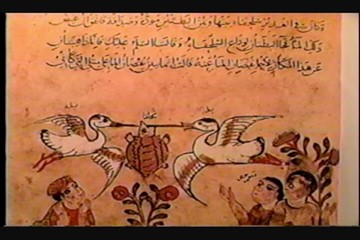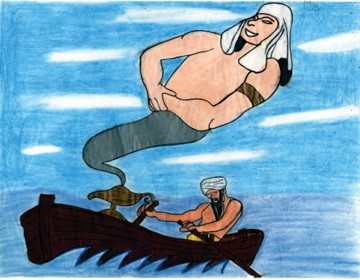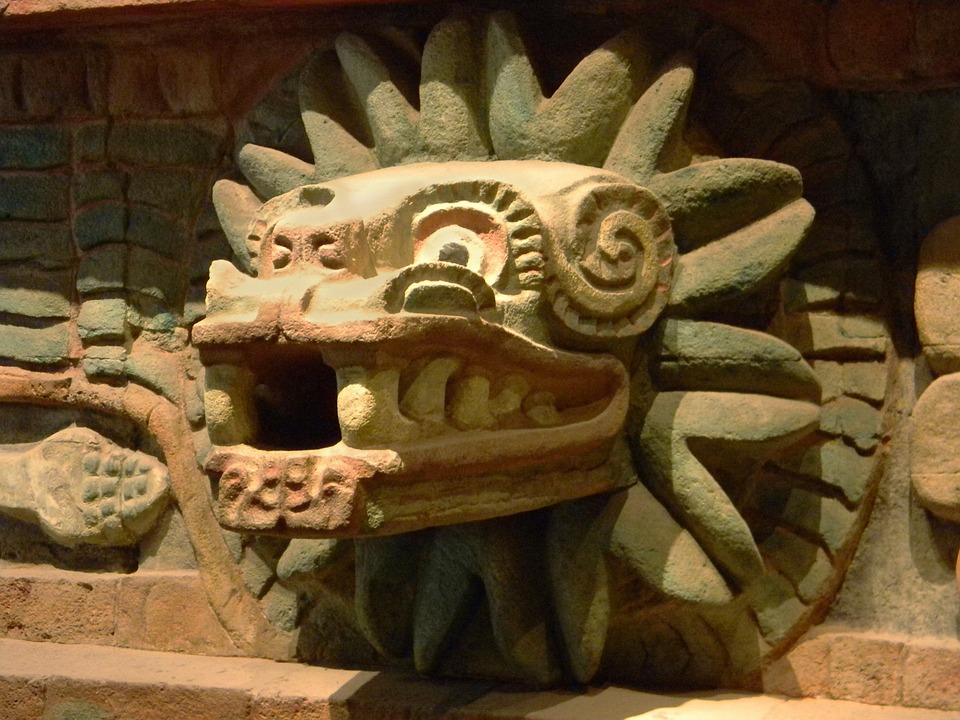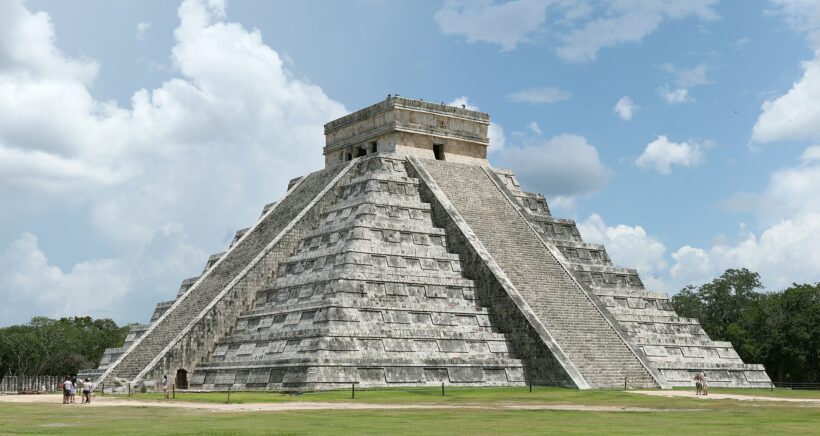In this paper we will understand by people, the “different forms of historical communities (tribe, nation, etc.) (Silo, 2002:587) that emerge for “traditionalist motivations” (Poirier, 1992:8).
By David Sámano
In January 1994, the “Humanist Cultural Days” were held in Mexico, an international event organised by members of the humanist movement, a worldwide group with followers in various countries. As a member of this organisation, I attended several discussion tables and had the opportunity to collaborate in the planning of some colloquiums where the theme of humanism was approached from different perspectives.
Today, 11 years after the convention took place, it seems very likely to me that the event as a whole would have been a dialogue between classical Western humanism and different aspects of culture, philosophy and science, also from the Western world. This was not the case, however, due to a series of factors that burst into the development of the event to push it, surprisingly, beyond this undesirable cultural monologue. On the one hand, as we know, on the same date, the uprising of indigenous Zapatistas in the state of Chiapas took place, an event which, in addition to being a wake-up call about the marginalisation of most of the country’s ethnic groups, brought to our attention that deep Mexico of which the anthropologist Guillermo Bonfil Batalla spoke so much and so well. Thus, in the internationalist context of the conference, the indigenous Mesoamerican presence burst in, inviting us to listen to their own version of humanism. On the other hand, among the participants were comrades from the humanist movement who had developed an important experience with exiles from the former Yugoslavia in Italy, in the so-called “inter-ethnic parliaments”, ad hoc organisations, implemented to offer a space for dialogue in the face of the onslaught of discrimination, the remnants of ethnocide. What began spontaneously inspired to a large extent the idea of the “Centres of Cultures of the humanist movement”, which to this day have managed to develop in several countries.
The atmosphere at the 1994 Humanist Days was conducive to the emergence of the intuition of what we now call Universalist Humanism: Universalist Humanism, of which, by the way, classical Renaissance humanism is only one of many possible expressions.
The irruption of this “other humanism”, which we could call tribal, if we strip this term of its primitive connotation, accentuated its definition with the participation of members of a Mazahua indigenous community, an ethnic group living in the state of Mexico. Also unexpectedly, they were present in the courtyard of the Claustro de Sor Juana – where the event was taking place – performing a ritual known as the ceremony of generosity. After the performance of traditional music by a group of musicians from the aforementioned ethnic group, the oldest representative of the group hung a loaf of bread, by way of a medal, on each of the people gathered around him. Then he said, in his own language and later in Spanish:
“…It has been said that we indigenous people don’t know how to do anything, but we are honest, respectful people, just as we respect other cultures, we also want our culture to be respected, that it no longer be trampled on by people who don’t think. We want to work, we don’t want paternalism, because our parents taught us to work the mother earth; we ask the people who don’t understand us to understand us as a way of thinking. We can’t stand it any longer because our lands, our forests have been left without animals or birds”.
Similarly, in another part of his speech, he referred to a Latin American thinker, the inspiration for the event he was at, saying the following:
“We ask (we say) to the man, the one who organised these days, who will long live his heart in the whole world because he is the man who thinks for the whole world, I don’t know him, but if I can meet him at this moment I thank him on behalf of those children, those old people who exist all over the planet of the earth, not only in Mexico but all over the planet of the earth, because we want peace and tranquillity. Thank you.
It was precisely Mario Rodríguez – to whom the Mazahua chief had referred – who once envisioned the humanist movement as a frontier culture, born on the edge of Western civilisation and, therefore, highly sensitive to the contributions of other peoples, to a greater or lesser degree, alien to the Western context. The fable of “Turtle’s Neck” and the legend of the “old fisherman” are stories originating in the Middle East, which Mario Rodríguez used to illustrate two of his “Principles of Valid Action”.

Turtle Neck

The legend of the old fisherman
This sensitivity became evident in 1994, when the members of the humanist movement gathered at the Claustro de Sor Juana organised the first international demonstration of support and solidarity with the indigenous people of Chiapas, in the face of the probable violent reaction of the Mexican government. But it is worth noting that Mario Rodríguez, in his role as ideologue of the humanist movement since the 1970s, has shown a deep interest in including contributions from all cultures in his writings.
From a purely academic perspective, the culminating point of this universalism, in my opinion, was also in 1994, with the publication of the yearbook entitled: El humanismo en las distintas culturas (Humanism in different cultures). This compilation includes a text by Mario Rodríguez himself: Que entendemos hoy por humanismo universalista (What we understand today by universalist humanism). This work lays the conceptual and methodological foundations for the search for a conception of humanism that goes beyond the legacy of Western civilisation. In the yearbook, a number of contributions by Russian scholars analyse humanist aspects of different civilisations. Subsequently, the 1996 yearbook was published in the same vein.
Today, after reviewing the valuable contributions of our Russian colleagues, I note that most of their work has been fortunate enough to have a written source file, as their explorations have focused on ancient civilisations of Eurasia, Africa and America, which are generally dealt with by historians, or even more so, by specialists such as sinologists and orientalists. These are societies which, according to Sergey Semenov, having overcome tribal beliefs, glimpsed universal morals that manifested themselves in world religions such as Hinduism, Buddhism, Christianity and Islam and in ethical systems such as Confucius and the Toltecayotl Way of Life attributed to Quetzalcoatl (Semenov, 1994:12).

I have tried, for my part, to explore, looking for forms of expression of the humanist attitude in peoples who, unlike those analysed by Russian colleagues, have been studied, preferably by anthropology and ethnology, as being at a cultural stage that is not governed by the existence of the state or, to put it in Redfield’s (1976) terms, folk societies.
However, I believe that the inspiration that has animated me is the same that has driven the aforementioned authors: to contribute to the proposal of “balancing Western humanism with other forms of humanism, equally rich, found in the most diverse cultures” (Silo, 1996), in order to ultimately elaborate an Encyclopaedia of New Humanism. And we accept the suggestion to balance, because rather than relativising the concept of humanism, we try to broaden and enrich it, in order to progressively construct the image of a universalist humanism, shared by all cultures, not only by those that today, or in the past, have held the central place.
David Sámano is a full-time research professor at the Universidad Autónoma de la Ciudad de México (UACM) and researches topics related to epistemology, philosophy of science and anthropology of science.
Paper presented by Dr. David Sámano at the “Congreso de etnología y humanismo” of the ENAH, 19-22 April 2005, Mexico.
Article from the book Interpretando al Nuevo Humanismo. Ethnology, Epistemology and Spirituality. https://edicionesleonalado.net/es/producto/interpretando-al-nuevo-humanismo/






